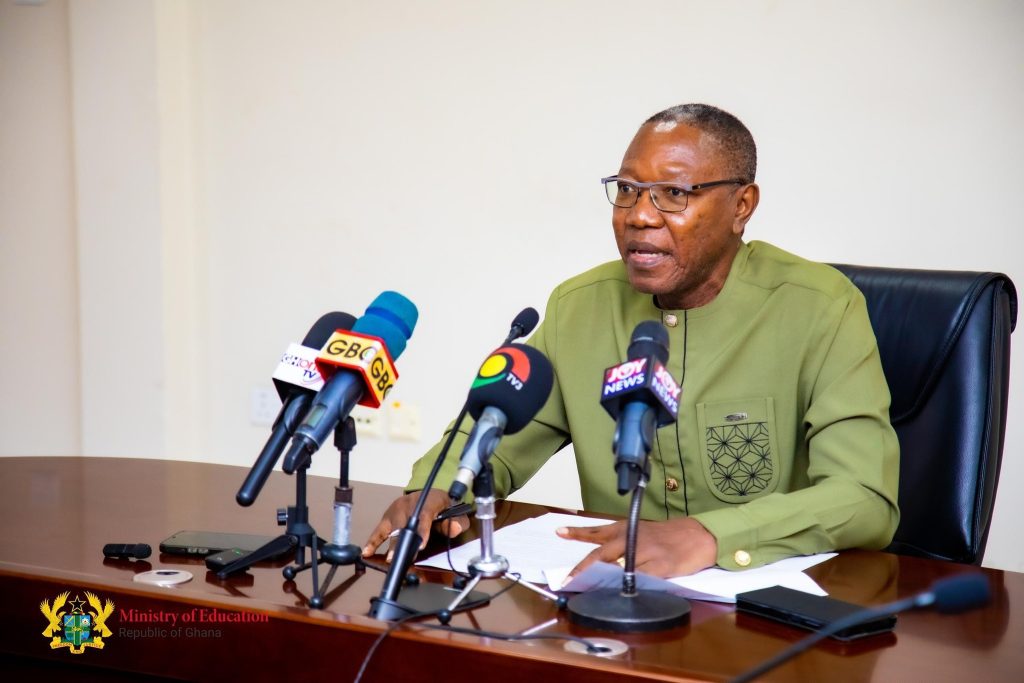The Ministry of Education has clarified that the compulsory use of Ghanaian languages as the medium of instruction applies only from Kindergarten to Primary Three (Lower Primary), and not throughout the entire basic education level.
The clarification comes after widespread public debate following a directive issued by the Minister of Education, Haruna Iddrisu, on the use of mother tongue in basic schools.
Speaking at the launch of the Foundational Learning Action Tracker on Monday, October 27, Deputy Education Minister, Clement Apaak, explained that the directive had been misunderstood by some sections of the public.
“The Honourable Minister for Education has asked me to clarify that the policy directive he announced on Friday regarding the compulsory use of mother tongue as a medium of instruction in our public basic schools is confined—emphasis, confined—to KG up to Primary 3,” he said.
“In other words, KG and Lower Primary. Having clarified what seems to have given a few persons sleepless nights, I bring you greetings,” he added.
The Ministry says the approach aligns with existing educational policy guidelines which focus on strengthening foundational literacy and numeracy in early childhood education using familiar local languages.
Meanwhile, Senior Lecturer at the University of Cape Coast’s Department of Basic Education, Dr. Joyce Tawiah-Mensah, has urged the government to demonstrate strong political commitment to ensure effective implementation of the policy.
Speaking on the Citi Breakfast Show, Dr. Tawiah-Mensah commended the initiative but warned that its success hinges on the availability of properly trained teachers and adequate teaching and learning materials in local languages.
“It’s something that we can do, but we need political commitment in terms of teacher training, materials and others,” she emphasised.
The ministry maintains that strengthening foundational learning through the mother tongue remains a key component of improving educational outcomes nationwide.

